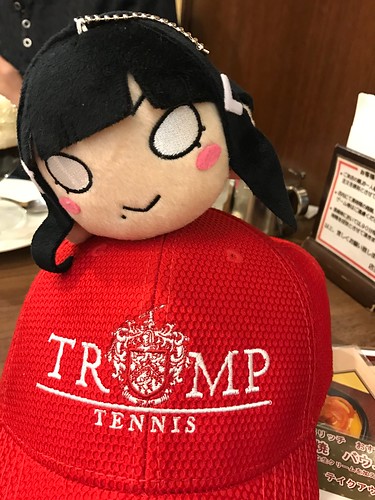Chatty Trump, on the witness stand, is a tangent machine: ‘Control him,’ judge begs his lawyers
Trump #Trump

Loading Something is loading.
Thanks for signing up!
Access your favorite topics in a personalized feed while you’re on the go. download the app
The judge in Donald Trump’s civil fraud trial repeatedly interrupted the former president’s historic — and at times rambling — testimony on Monday.
During heated exchanges that included the former president railing about the Democratic plot against him, the judge begged Trump’s lawyers to control him.
“I beseech you to control him if you can. If you can’t, I will,” the judge, New York Supreme Court Justice Arthur Engoron, said just 40 minutes into Trump’s testimony.
Trump began testifying at 10 a.m., and within 15 minutes, his wide-ranging answers — invoking George Washington, his great book sales, and criticisms of the Democratic party’s “weaponization” of cases against him — prompted the judge to interrupt.
“No speeches,” the judge told him, calmly at first. “This is not a political rally.”
Within a half hour, the judge asked Trump’s lead lawyer, Christopher Kise, for the first of three times to control him.
When defense lawyer Alina Habba told the judge that, in presiding over the trial, it’s his job to hear what the witness has to say, the judge shouted in response.
“No, I’m not here to hear what he has to say,” he told Habba. “I’m here to hear him answer questions,” he said. “Just questions and answers.”
“This is a very, very unfair trial,” Trump himself chimed in at that point. “Very. Very. And I hope the public is watching.”
“Stricken! Stricken!” the judge cut in at another point in the morning, after another non-responsive answer from the former president.
It was off to the races nearly as soon as Trump took the witness stand, with the former president, his lawyers, lawyers for New York’s attorney general, and the judge, all fighting for the reins to the trial.
“I would like to move things along,” Engoron advised Trump early on, after he claimed, at length, that he used “very substantial bankers” who “paid little attention” to the net-worth statements at the center of the case.
“Mr. Kise, can you control your client?” Engoron asked. “This is not a political rally. This is a courtroom.”
“Your honor, you’re in charge of the courtroom,” Kise responded.
Trump made his own dislike of Engoron clear. When asked about how he applied GAAP — generally accepted accounting principles — to one property, Trump complained that he was being asked about old news. He referenced a longstanding objection by his lawyers that many of the issues in the trial were outside of the statute of limitations, and attacked Engoron for not siding by them.
“This is so long ago. This is well beyond the statute of limitations, I think,” Trump said. “Anyone would be well beyond the statute of limitations, I think, but probably not me because I’m sure the judge will rule against me because he always rules against me.”
Engoron seized the moment as an example of Trump’s tangent-filled rambling.
“Mr. Kise, was that an answer to the question?” Engoron asked Trump’s lawyer.
“Mr. Trump, please just answer the question,” Engoron begged Trump. “You can attack me however you want, but please answer the question.”
When Trump launched into a several-sentence-long answer about how his net-worth estimates to banks were underestimated — because he could have included his very substantial brand value — the judge cut in again.
“Mr. Wallace, did you ask for an essay on brand values?” the judge asked the lawyer doing the questioning, Kevin C. Wallace.
Wallace noted that he had not. But in taking up his answer again, Trump persisted, saying that many big corporations have brand value. “Coca-Cola has brand value,” Trump said.
“That was a yes or no question,” the judge cut in. “Please answer yes or no.”
Trump submitted to a court-ordered, pre-trial deposition in the fraud case back in April, when he and Wallace first faced each other in person.
The deposition, made public in September, was equally rambling offering a look at how Trump hopes to beat New York Attorney General Letitia James at trial.
James has accused Trump, his company, and five longstanding executives — including his two eldest sons — of wildly, and fraudulently, exaggerating the value of his assets to banks and insurers.
She wants to permanently ban him, the company, and his sons from ever running a business in New York again.
Trump’s five main defenses, as revealed in his deposition, include arguing he had nothing to do with the fraudulent annual net worth statements. He also argued that the statements themselves are fraud-proof because they invite banks to double-check his math.
He also argues that banks — primarily Deutsche Bank, his biggest lender — made plenty of money in interest and that in fact, his net-worth estimates were actually “way low.”
James has alleged that Trump’s estimates were way high — exceeding his assets’ true value by as much as $3.6 billion a year.
This is a breaking story; please check back for developments.